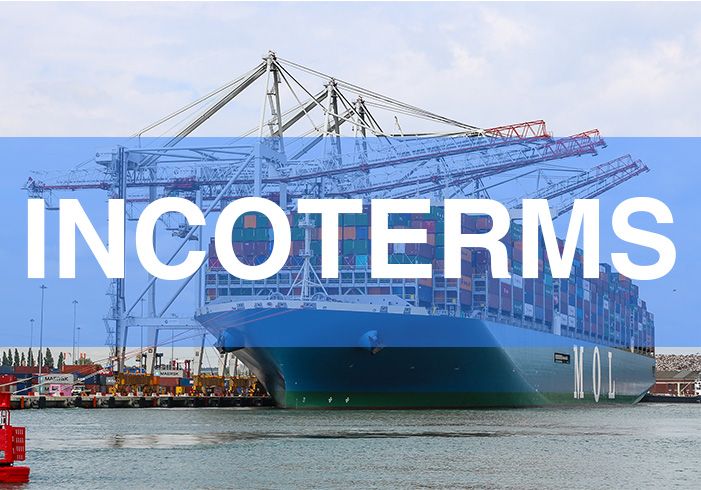As the decade comes to an end, preparations for a revision of rules are being made to introduce a new set of Incoterms. What changes can you start to expect for Incoterms in the year 2020? Well, starting the 1st of January in the year 2020 industries involved with international transportation will have to say goodbye to the current version and accept the new one. There will be significant changes that will impact exporters and importers around the world. The committee is currently debating and drafting, coming together to see how best to address current pitfalls with the existing version, provide better clarification of the terms and leave less room for misinterpretation. While it might still be a few years before this is published and implemented entirely, now is the time to prepare for what is coming.
Incoterms set to disappear
It seems that the committee is going to eliminate EXW, FAS, and DDP. Right now, the EXW and DDP Incoterm are considered more applicable to domestic Industries because they currently do not align with the European Union’s new Customs Code. The justification for eliminating FAS is that it is seldom used and there already exists the FCA Incoterm which suffices.
Incoterms set to split
DDP is going to pave the way for DTP and DPP. We already mentioned that DDP is going to disappear because it is inconsistent with payments of Customs expenses but rather than eliminated 100% the committee is going to create two different Incoterms: DPP and DTP.
Right now, the DDP Incoterm states that all customs duties at the destination have to fall onto the shoulders of the seller no matter where the goods were delivered to, but the new changes will stipulate that the seller will still be responsible for these customs duties. But, there is a better distinction based on the spinal location for delivery.
DTP Incoterm: Right now, the changes will stipulate that the seller is responsible for any transport related costs which extend to customs duties if the goods are delivered to a terminal at the final destination.
DPP Incoterm: Seller is going to be responsible for any transport related costs when the goods are delivered to some place that is not the transport terminal like a buyer’s physical address.
The FCA Incoterm is considered one of the most versatile right now. 4 out of 10 International Trade operations are only able to be carried out successfully as a result of this. One of the most significant advantages it has to offer is the flexibility concerning delivery location. The delivery location can be a warehouse, an airport, the seller’s address, or something else. Additionally, this can be applied to any mode of transportation which is why it is ideal for multimodal transport.
However, this is scheduled to change and rather than be one Incoterm; it is going to be divided, one for sea transportation and one for land transportation.
New Incoterms
CNI: This is the newest member of the family. This is otherwise referred to as cost and insurance. Right now, this is meant to fill a gap that will exist when the FCA mentioned above is divided. As with all of the others, this will be an arrival Incoterm, which means any risks and responsibilities are transferred from the seller to the buyer at the port of departure. However, this change will allow for exporters to bear the burden of cargo insurance so that the buyer takes charge of nothing more than the risk of Transportation.
Some of the most significant revisions are undoubtedly the new Incoterms, but that isn’t the only thing set for the 2020 schedule.
For the first time, China and Australia will be involved. The drafting committee gets together regularly to address the issues and problems facing the 150 member countries. Concerns are brought up at the national level before they reach the international headquarters. Many of the members who are part of this drafting committee are European. However, For the first time, The drafting committees are also going to include a representative from Australia and China. They will be working together with representatives from the United States, the United Kingdom, France, Turkey, and Germany. All of these Representatives will be responsible for revising each draft of this 2020 change until a final version can be produced.
The final version is intended to be more practical and simplify, much easier to understand. There are currently some misunderstandings and gray areas which the committee hopes to eliminate with this new edition. The committee is aware of the potential consequences that misinterpretations can cause and have already cost which is why they’re working so hard to make sure that terms are clear, and everyone has a clear understanding of Incoterms with this new version.
One of the most significant objectives of the new version is to simplify it, so it is expected that the 2020 draft will have simpler terms and will be supported with better examples to make sure that there is no room for misinterpretation. As the world has become increasingly globalized and digitized international trade operations are starting to diversify. Many members in the industry are working with new types of exporters and importers. Professionals and different sectors do not have access to the same opportunities as conventional industry members which is why a new version of such documentation is imperative.
Dealing with the changes
It will be well over a year from now before a finalized version is produced. Beyond that, it could take a few more years to implement the changes once the final version is published. While these changes will bring with them a different way to complete international transactions, during the time of deliberation among the committee every industry member will have time to start making adjustments.


